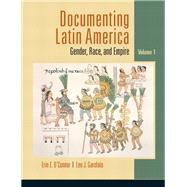
Erin E. O’Connor is an associate professor of history at Bridgewater State College in Massachusetts. She has over a decade of teaching experience in both private and public institutions of higher education, where she has taught a wide variety of courses on Latin American and world history. O’Connor’s research has focused on gender, ethnicity, and nation-state formation in nineteenth-century Latin America, which she explored in her first monograph, Gender, Indian, Nation: The Contradictions of Making Ecuador, 1830-1925 (Arizona, 2007). Her current research scrutinizes the multiple public implications of domesticity in Spanish America, investigating how both elite and poor individuals and families engaged with changing gender laws.
Leo J. Garofalo is an associate professor of history at Connecticut College. Since 2000, he has taught majors and non-majors in the US and South America about colonial Latin America, the African Diaspora, modern politics and revolution, and immigration and migration issues. Garofalo's research explores the making of race in colonial Andean societies and the movement of people of African descent in the early Iberian worlds embracing three continents. His most recent book explores the impact of the Diaspora on the Americas and is co-authored with Kathryn Joy McKnight, Afro-Latino Voices: Narratives from the Early Modern Ibero-American Atlantic World, 1550-1812 (Hackett, 2009). Currently he is researching the experiences of black sailors, soldiers, and popular saints and how they carved out a place of belonging and respect for themselves within the Spanish and Portuguese empires.
Thematic Index
Preface
Introduction: “Doing” Latin American History in the Age of Nation States
Maps
Section I: Imperial Aspirations and the Limits of Colonial Domination
Introduction to Section
1) Christopher Columbus Evaluates Indigenous Societies, Leo J. Garofalo, Connecticut College
2) Politics, Gender, and the Conquest of Mexico, Leo J. Garofalo, Connecticut College
3) Afro-Iberian Sailors, Soldiers, Traders, and Thieves on the Spanish Main, Leo J. Garofalo, Connecticut College
4) A Case of Contested Identity: Domingo Pérez, Indigenous Immigrant in Ciudad Real, Chiapas, Laura Matthew, Marquette University
5) Runaways Establish Maroon Communities in the Hinterland of Brazil, Leo J. Garofalo, Connecticut College
Section II: Church, Society, and Colonial Rule
Introduction to Section
6) European Priests Discuss Ruling Indigenous and African Peoples, Leo J. Garofalo, Connecticut College
7) Fray Alonso de Espinosa’s Report on Pacifying the Fugitive Slaves of the Pacific Coast, Charles Beatty-Medina, University of Toledo
8) Blending New and Old Beliefs in Mexico and the Andes, Leo J. Garofalo, Connecticut College
9) Patrimony and Patriarchy in a Colonial Mexican Confraternity, Annette McLeod, Skidmore College
10) Spiritual Directions: Gender, Piety, and Friendship in Late Colonial Mexico, Karen Melvin, Bates College
Section III: Finding a Place within Colonial Hierarchies
Introduction to Section
11) African Women’s Possessions: Inquisition Inventories in Cartagena de Indias, Von Germeten, Oregon State University
12) The Pious and Honorable Life of Ana Juana of Cochabamba (1675), Rachel Sarah O’Toole, University of California, Irvine
13) Obeying the Heart and Obeying the Church, Patricia Seed, University of California-Irvine
14) Black Hierarchies and Power in Colonial Recife, Brazil, Elizabeth Kiddy, Albright College
Section IV: Challenging Colonial and Cultural Norms
Introduction to Section
15) A Romance of Early-Modern Mexico City: Self Interest and Everyday Life in Colonial New Spain, Brian Owensby, University of Virginia
16) Ambitious Women in a “Man’s World”, Leo J. Garofalo, Connecticut College
17) Costume and Custom: The Social Significance of Female Dress in Colonial Potosí, Jane Mangan, Davidson College
18) To Change the Fate of All Women: Charges of Witchcraft Against Juana de Mayo, Leo J. Garofalo, Connecticut College
19) On Her Deathbed: Beyond the Stereotype of the Powerless Indigenous Woman, Miriam Melton-Villanueva, University of California, Los Angeles
Section V: The Age of Reform
Introduction to Section
20) Official Paintings Seek to Classify People in a Complex Society, Leo J. Garofalo, Connecticut College
21) Creole Town Councils Fear Change from Above and Below, Leo J. Garofalo, Connecticut College
22) The Politics of Petty Commerce: Who Defines the Public Good? R. Douglas Cope, Brown University
23) Indians Do Everything (an Otomí poem), John Tutino, Georgetown University
24) High Clergy Warns the Crown of Popular Discontent, Leo J. Garofalo, Connecticut College
Section VI: The Age of Transformation and Revolt, 1780-1825
Introduction to Section
25) Indian Leaders Tupac Amaru and Micaela Bastidas Fight to End Spanish Rule, Leo J. Garofalo, Connecticut College
26) Father José María Morelos and Visions of Mexican Independence, Erin E. O’Connor, Bridgewater State College
27) The Many Views of Simón Bolívar, Erin E. O’Connor, Bridgewater State College
28) Forging a Guerrilla Republic, Javier Marión, Emmanuel College, Boston
29) Slavery, Race, and Citizenship in the Empire of Brazil: Debates in the Constituent Assembly of 1823, Kirsten Schultz, Seton Hall University
30) Empire, Loyalty, and Race: Militiamen of Color in Nineteenth-Century Cuba, Michele Reid Vazquez, Georgia State University
Glossary
The New copy of this book will include any supplemental materials advertised. Please check the title of the book to determine if it should include any access cards, study guides, lab manuals, CDs, etc.
The Used, Rental and eBook copies of this book are not guaranteed to include any supplemental materials. Typically, only the book itself is included. This is true even if the title states it includes any access cards, study guides, lab manuals, CDs, etc.